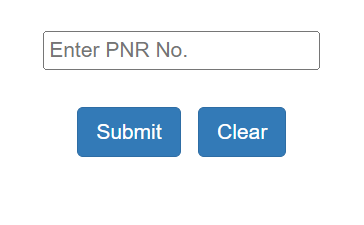Starting a new business involves several steps, from the initial idea phase to launching and managing the business. Here’s a comprehensive guide to help you set up a new business:
1. Idea and Research
- Identify Your Business Idea:
- Determine what product or service you want to offer. Ensure it is something you are passionate about and knowledgeable in.
- Market Research:
- Conduct thorough market research to understand your target audience, competitors, and market trends. Identify the demand for your product or service and potential challenges.
- Unique Selling Proposition (USP):
- Define what makes your business unique. What sets you apart from competitors? This will be your USP.
2. Business Plan
- Executive Summary:
- Write a brief overview of your business, including the business name, location, and mission statement.
- Business Description:
- Describe what your business does, the market needs it will meet, and the business structure (sole proprietorship, partnership, corporation, etc.).
- Market Analysis:
- Detail your target market, market size, expected growth, and your marketing strategy.
- Organization and Management:
- Outline your business’s organizational structure, ownership details, and profiles of your management team.
- Products or Services:
- Describe your products or services, including the pricing, lifecycle, and benefits to customers.
- Marketing and Sales Strategy:
- Explain how you will attract and retain customers. Detail your sales strategy, advertising plan, and promotional activities.
- Funding Request:
- If you’re seeking funding, specify your funding requirements, potential future funding requirements, and how you plan to use the funds.
- Financial Projections:
- Provide financial projections, including income statements, cash flow statements, and balance sheets for the next three to five years.
3. Legal Structure and Registration
- Choose a Business Structure:
- Decide whether you will operate as a sole proprietorship, partnership, limited liability company (LLC), corporation, or another structure.
- Register Your Business:
- Register your business name with the appropriate government authorities. Check for trademark availability if applicable.
- Obtain Necessary Licenses and Permits:
- Research and apply for any required licenses and permits to legally operate your business.
- Get an Employer Identification Number (EIN):
- Apply for an EIN from the IRS if you plan to hire employees or operate as a corporation or partnership.
4. Finances
- Open a Business Bank Account:
- Keep your personal and business finances separate by opening a business bank account.
- Set Up Accounting:
- Implement an accounting system to track income, expenses, and taxes. Consider hiring an accountant or using accounting software.
- Secure Funding:
- Determine how you will finance your business. Options include personal savings, loans, grants, venture capital, or angel investors.
- Manage Cash Flow:
- Create a cash flow statement to ensure you can cover operating expenses. Monitor your cash flow regularly.
5. Location and Equipment
- Choose a Business Location:
- Decide whether you will operate from home, rent office space, or have a retail location. Ensure the location is accessible to your target market.
- Purchase Equipment and Supplies:
- Identify and purchase the necessary equipment, tools, and supplies for your business.
- Set Up Technology:
- Invest in the necessary technology, including computers, software, internet, and phone systems.
6. Build Your Team
- Hire Employees:
- If needed, start the hiring process by defining roles, creating job descriptions, and interviewing candidates.
- Develop Company Policies:
- Create employee policies, a handbook, and set up payroll and benefits administration.
- Training and Development:
- Provide training to your employees and create a plan for ongoing professional development.
7. Marketing and Sales
- Develop a Brand:
- Create a logo, business cards, and other branding materials. Establish a consistent brand voice and identity.
- Build a Website:
- Develop a professional website to showcase your products or services. Optimize it for search engines (SEO).
- Create a Marketing Plan:
- Utilize various marketing channels such as social media, email marketing, content marketing, and paid advertising to promote your business.
- Network:
- Attend industry events, join local business groups, and network to build relationships and grow your customer base.
8. Launch Your Business
- Plan a Launch Event:
- Consider hosting a launch event or offering special promotions to attract customers.
- Monitor and Adjust:
- Track the success of your launch and be prepared to make adjustments based on feedback and performance.
- Provide Excellent Customer Service:
- Focus on delivering outstanding customer service to build loyalty and encourage repeat business.
9. Ongoing Management
- Monitor Financial Performance:
- Regularly review your financial statements and performance metrics to ensure your business is on track.
- Adapt and Grow:
- Be prepared to adapt your business model as needed. Stay informed about industry trends and continuously seek ways to improve and grow your business.
- Maintain Compliance:
- Keep up with regulatory requirements, renew licenses and permits, and ensure your business remains in good standing.
Starting a new business requires careful planning, dedication, and hard work. By following these steps, you can set a strong foundation for your business and increase your chances of success.




Leave a Reply